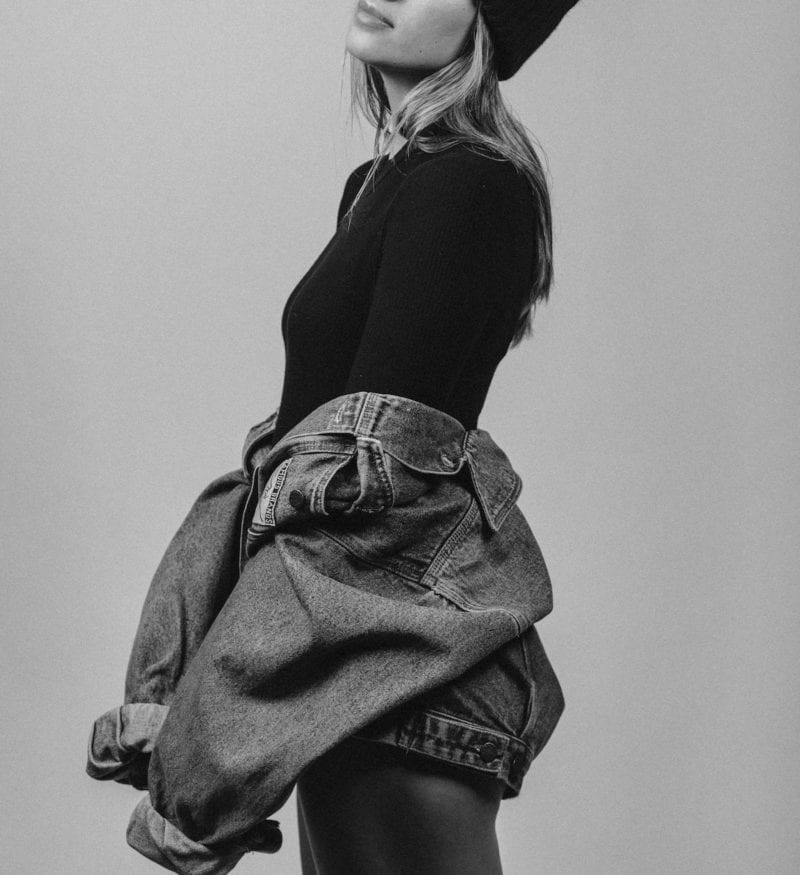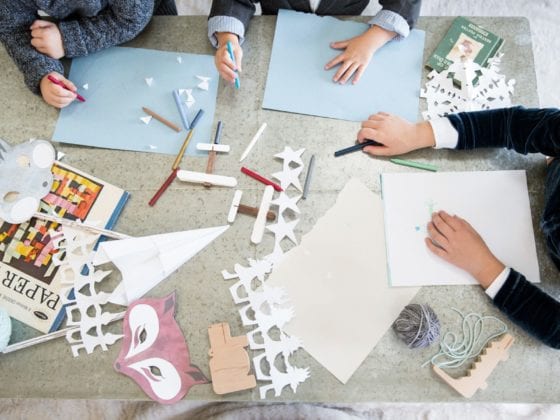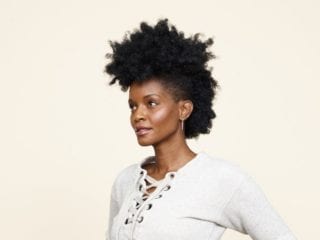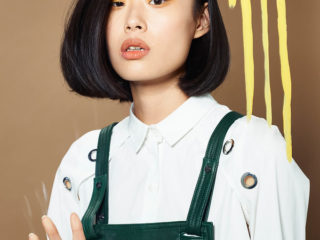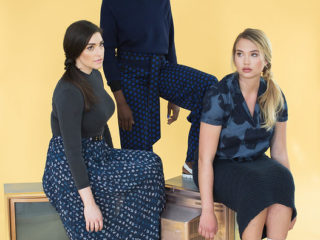What prompts a father of two girls, in Australia, to found a jeans company that is “zero exploitation?”
Especially considering that, in the garment industry, jeans are one of the most competitive genres you can attempt to get into, the fact that James Bartle founded Outland Denim and has thus far succeeded without using any of the cost-cutting tricks that most companies employ is extremely impressive.
The company pays every employee a fair salary and is working to ensure that every aspect of their industry is responsible and gives back to the communities and countries that it works out of. I sat down with Bartle when he came through Los Angeles to hear about how he is changing how the jeans industry to do good business and be excellent in their craft at the same time.
*By the way: He did give me a pair of jeans and I basically am a for-life fan.
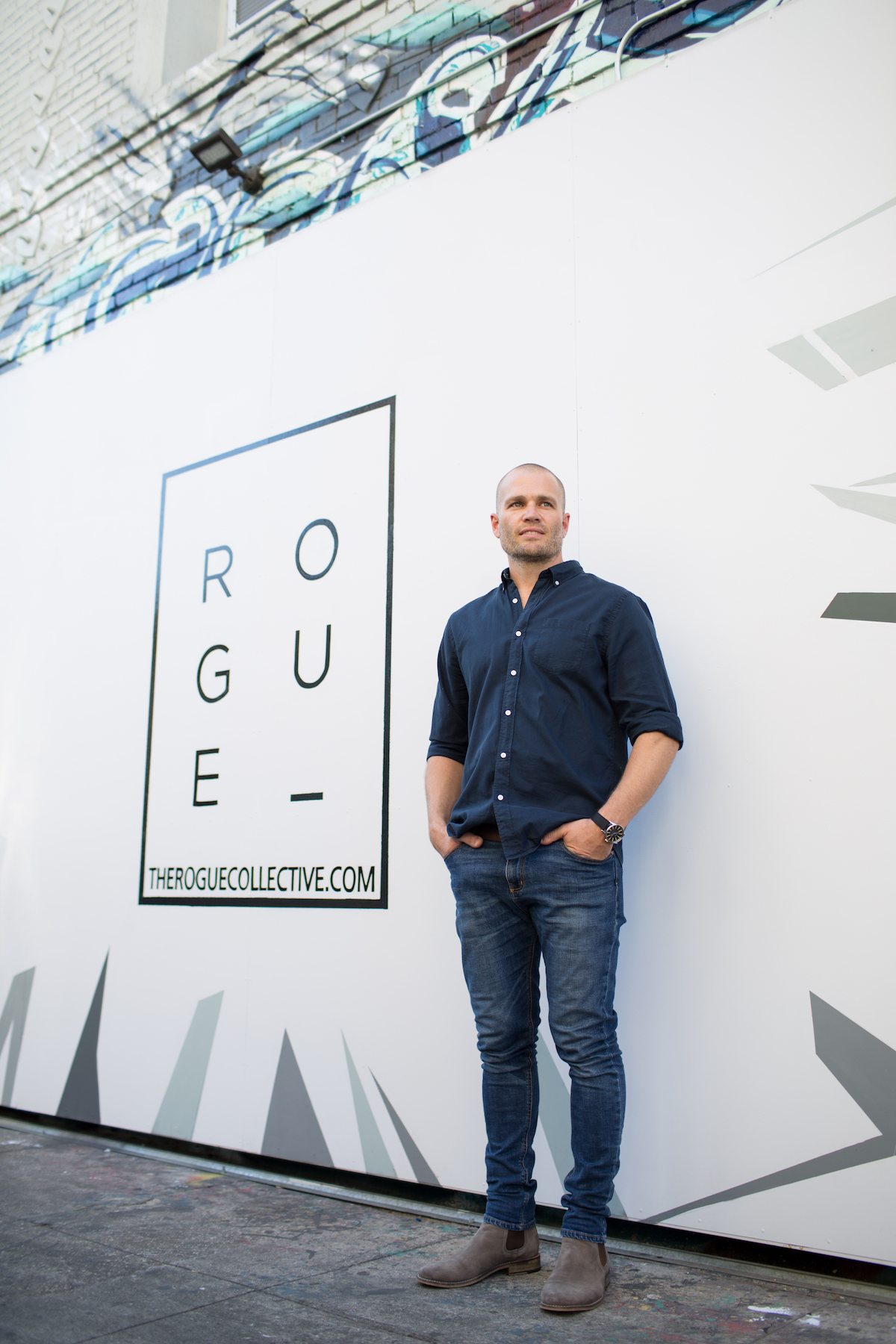
Teresa Miller Archer: So tell me the story of what brought you to start a company that attempts to contradict trafficking.
James Bartle: So my wife and I went with some friends to watch the movie “Taken,” and that really shook me up. When I went home I read some of the statistics around trafficking and I traveled with a rescue organization in Southeast Asia. It was there that I witnessed a young girl where it looked like it may have been her first night; she was scared and intimidated. That was the turning point for me. I asked the guys that I was with what we could do for her, and there was nothing. Everywhere there were underage girls working for sex; it was pretty confronting knowing that the little girl’s life was changed forever. I have two little girls and I thought, for whatever reason, her father wasn’t there to try to save her. It was deep inside that I knew I was meant to fight for these girls.
As my wife and I learned and researched, we found that everything went back to fundamental problems in Cambodia — where we are primarily based now — that have to do with poverty. So we asked, “Well, how do we fight poverty?” There’s the traditional methods of giving money, etc, but that creates reliance. Then there’s micro financing, also has a lot of flaws in terms of what it takes. So we realized it comes back to employment — they need a living wage.
We come up against this all the time when other brands will say “We do pay minimum wage” and sure, that’s the minimum, but that’s not a living wage. A living wage means that they can live a lifestyle like you and I enjoy where they can save if they want to or go out for dinner on the weekend if they want to. So we wanted to start a company that could train and employ women; the garment industry was natural as the next step.
I have two little girls and I thought, for whatever reason, her father wasn’t there to try to save her. It was deep inside that I knew I was meant to fight for these girls.
TMA: What was the bridge between fashion and denim in particular?
JB: Well, I always loved denim and if I was going to do anything in fashion it would have to be denim. Now, I was really naive as to how difficult it was.
Getting a fit for a woman is extremely difficult, but if you can get a beautiful fit and fabric that a woman (or a man) feels great in, then you have brand loyalty. For us to be sustainable, we need a beautiful product. If you buy it once, you’re going to wear it for ten years. We looked around and decided on Turkish denim, and the one we use just won an award for their treatment of women. We just wanted really good recovery that doesn’t stretch out or go baggy in the knees and has a lovely soft feel. We achieved that and now we have really good blocks and washes. We’re a basics brand of core wardrobe classics. That’s us.
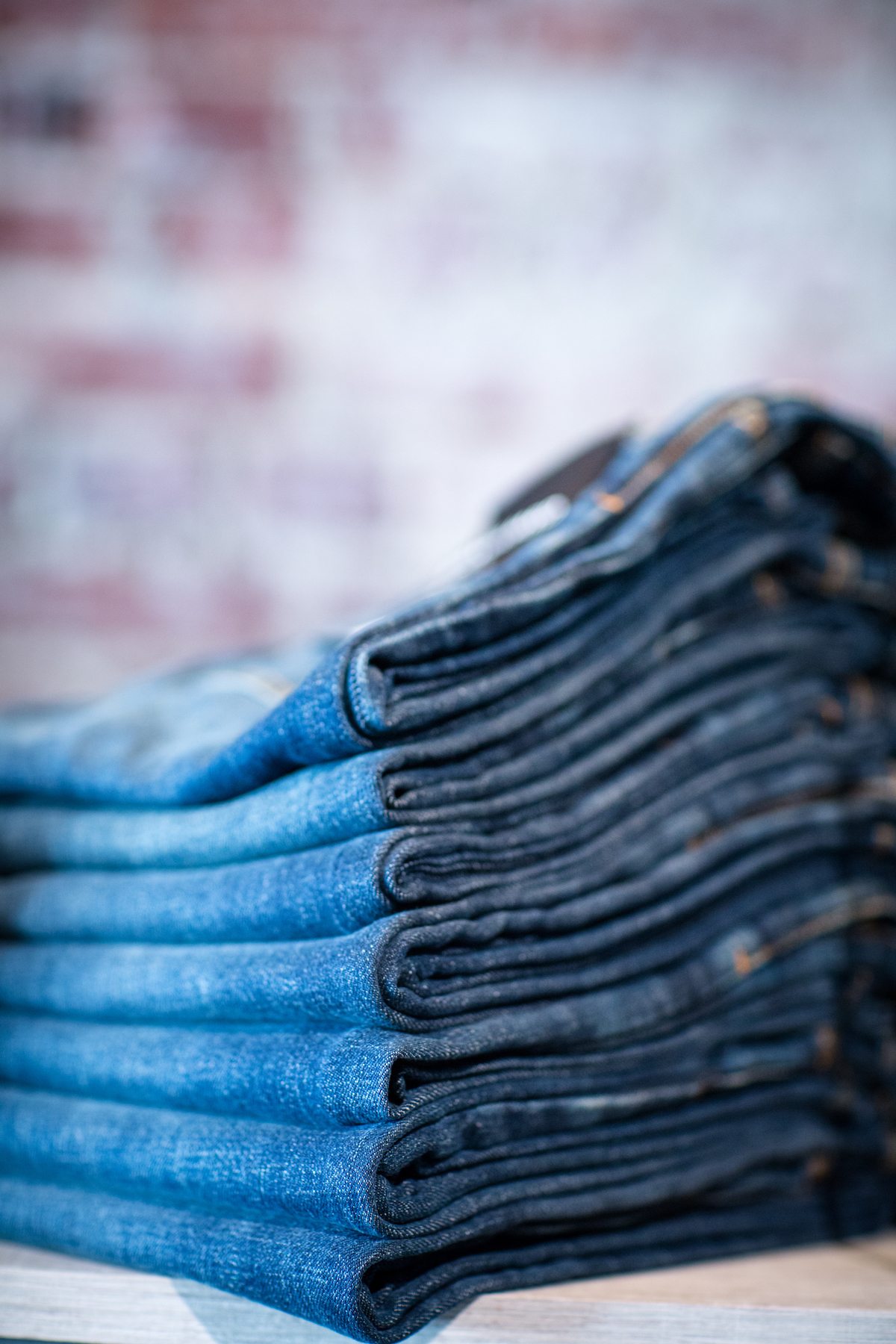
TMA: So tell me about the system you’ve created around empowering the women who work for you in Cambodia.
JB: So, every time we started to solve a problem we found a new one. We kept learning more and more about how severe the problem is and how our culture here is actually exploiting these people.
Everything came back to education past that — you can pay someone well, but they have to learn to manage their money. So we decided to pay the women to be at courses; that’s just part of working for us. We run courses to educate. We knew we had to teach about budgeting, so we brought in an accountant to talk to about how to pay off debts. (That’s another issue that causes women to have to go into the sex industry or taken into forced labor, which is a way larger issue even than the sex trafficking. We only learned that going into this.)
We [also] educate on health. A very famous company came through Southeast Asia and told women that they need their baby formula in order to take care of their babies and, in my opinion, that’s a criminal act. People who didn’t have access to become educated on this issue now believed that, “In order to be a mother, I have to spend money on formula.” Then, in many cases, the formula is then made by them with contaminated water and the infants now are drinking contaminated water. This all contributes to a climate of poverty.
We decided to create a model that’s a full circle of creating opportunity. The women are the ones who decide to make a change and they do; we give them opportunity and resources to be good at what they do and educate them with information like, “It’s better for you to feed your child breastmilk, if you can.”
We decided to create a model that’s a full circle of creating opportunity.
TMA: At what point did you decide that you’d created a real model for change?
JB: We spent five years developing, working the model and testing, “Does it actually pull people out of poverty?” The results were staggering.
Just by paying a living wage, even without the education element, was enough for women to build houses for their family. So we surveyed before and after the courses, and nearly every single person coming out of the women’s course was of complete opposite opinions from when they came in. For me, that’s one of the really exciting aspects of my company because that’s a generational change we’ve been able to make. So by empowering them, they don’t become reliant on us, they actually just become staff with great work ethic and amazing skills in lots of areas, not just as a seamstress. That brings real change. We’ve only had two girls leave since we founded, and they’ve been able to get jobs in facilities with supervisors because they’ve been upskilled.
We also are into a sustainable model that is totally accountable. We ask: Who grows the cotton? We follow that back to ensure that no one is getting exploited in that process and we have an employee dedicated to just that task of finding out better ways of helping everyone.
The environmental at one point started to rear its head, and the deeper I got in finding out about that, the more I went, “Oh my gosh, we are not looking after the globe. The fashion element is one of the worst exploiters.” So we shifted to using organic cotton that’s using less water, and then recycling and using vegetable dyes, dropping chemicals out of how we produce. Now we are working on power generation and closing the loop entirely in how we produce.
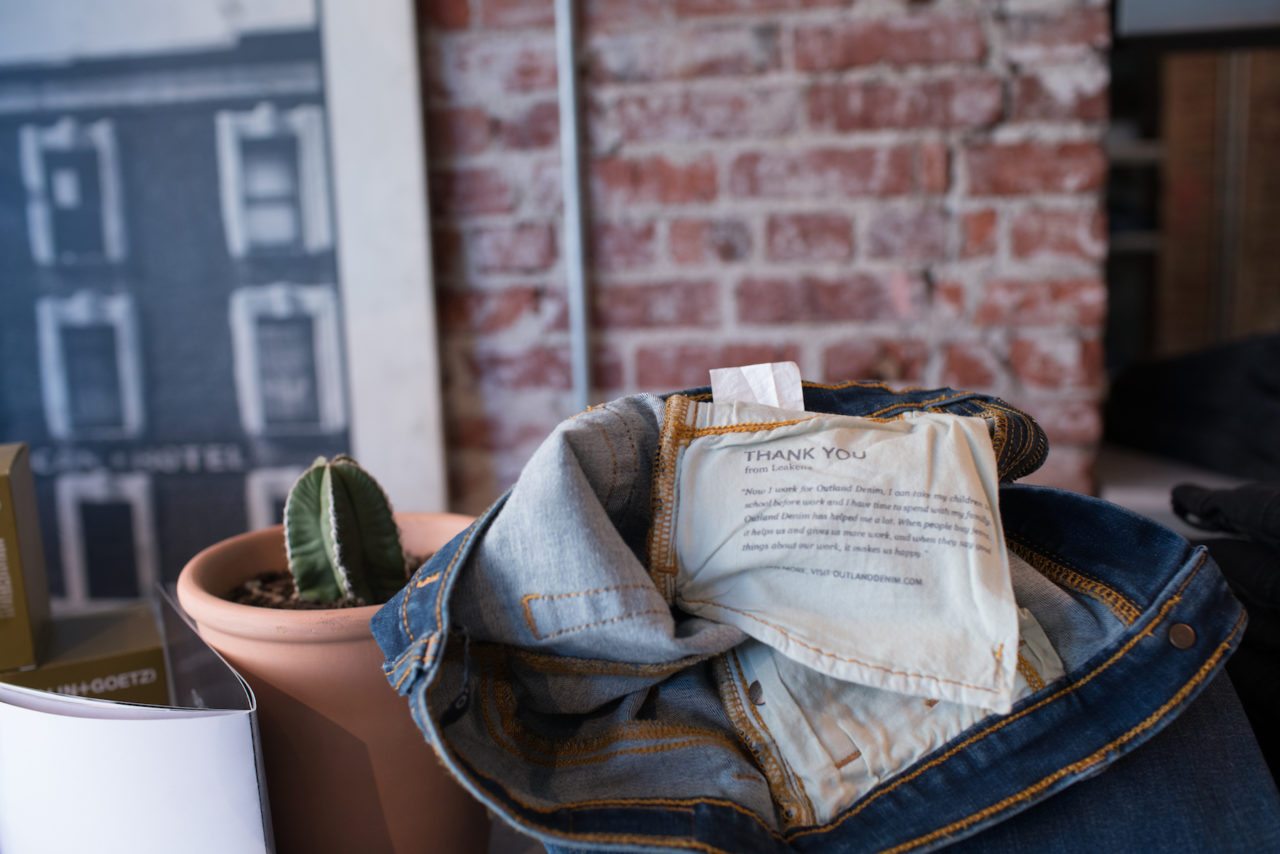
TMA: What are some of your favorite testimonials from the women who work with your company?
JB: One girl bought rice fields and bought a sister back who was purchased by a man. Another story that warms my heart every time is that one of the girls helped set someone else up in a business by buying her initial fabric and things like that. So, to me, that says we are winning. It’s a pay it forward mentality these girls are getting.
If we can keep that mentality going, then that will change communities. We didn’t launch the brand until we had this proof of “Yes, it’s working.” So that was a real challenge for us financially. We started as a not-for-profit, got halfway in and discovered that was not working; it was never going to be sustainable. We took the form to a “for profit” business and we call it “profit for purpose,” and it’s been the best thing we’ve ever done.
That’s what really excites me: that this model, this social enterprise style of business is the future. As more businesses catch onto that and start to stand for something, I think it’s going to be really exciting to see some of these global issues we are now faced with being solved with business.
I always think of the phrase: “Good business is when everybody wins.” That’s ingrained in our philosophy. It’s not for me about getting the “best deal” off of somebody—they have to win as well. Our commitment is #zeroexpoitation and it goes back to everything.
To learn more about Outland Denim, find their shop HERE and follow along on Instagram @outlanddenim.
Images via Outland Denim

